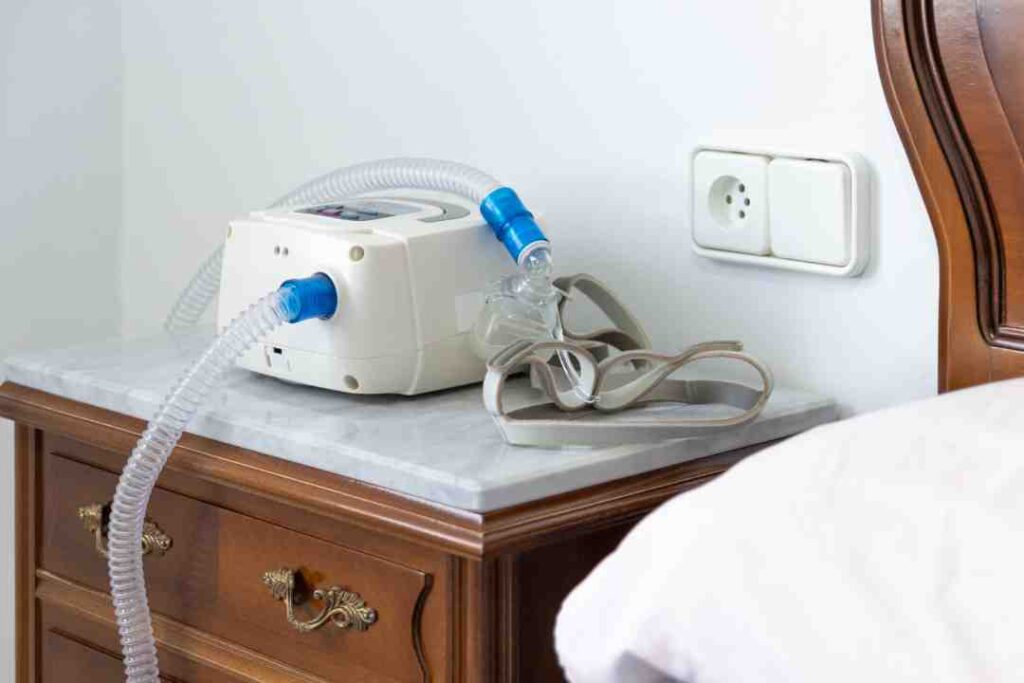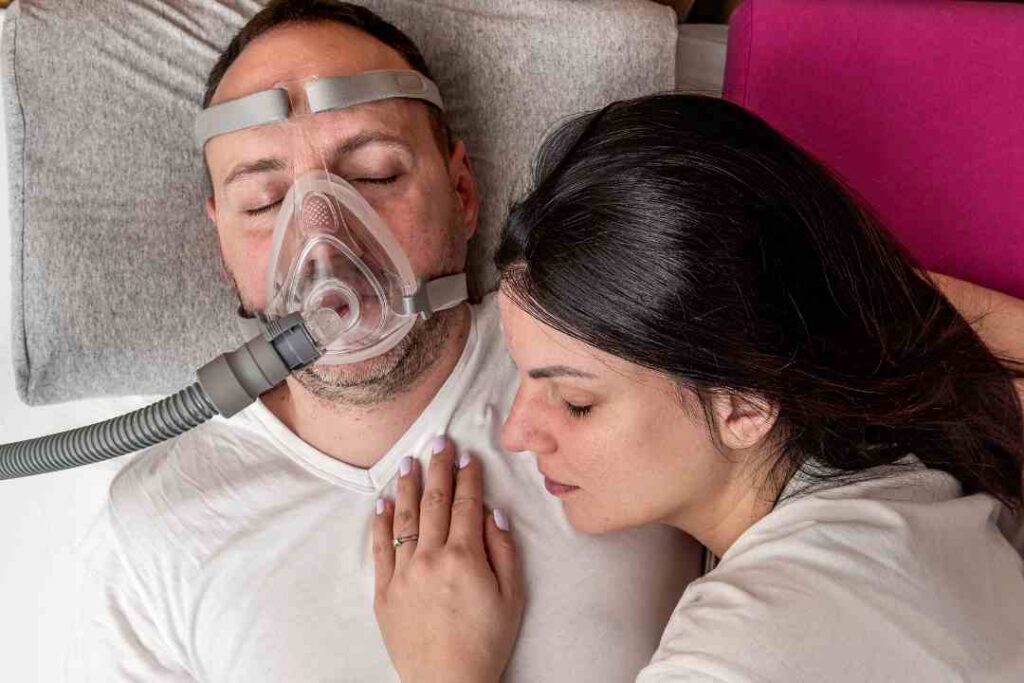Sleep apnea is a common sleep disorder that affects millions of people worldwide. It is characterized by pauses in breathing or shallow breaths during sleep, leading to poor sleep quality and daytime fatigue. Continuous positive airway pressure (CPAP) therapy is the most effective treatment for sleep apnea, and choosing the best CPAP mask is crucial for optimal therapy. In this article, we will explore the factors to consider when selecting a CPAP machine to ensure that you receive the best possible treatment.
Understanding Sleep Apnea and the Role of CPAP Therapy
Sleep apnea is a serious condition that can have a significant impact on your health and quality of life. It is estimated that around 25% of adults aged 30-70 have mild to severe sleep apnea. This condition occurs when the muscles in the throat relax during sleep, causing the airway to become blocked. The brain senses the lack of oxygen and briefly wakes the person up to resume normal breathing. These interruptions in sleep can occur hundreds of times each night, leading to fragmented sleep and excessive daytime sleepiness.
But what exactly happens during these interruptions in sleep? When the airway becomes blocked, the body’s natural response is to wake up momentarily to restore normal breathing. This can happen so quickly that most people are not even aware of it. However, these brief awakenings can disrupt the normal sleep cycle, preventing the individual from getting the restorative sleep they need.
Furthermore, the repeated drops in oxygen levels during sleep can have serious consequences for overall health. Chronic sleep apnea has been linked to a range of medical conditions, including high blood pressure, heart disease, stroke, diabetes, and even depression. It is not just a matter of feeling tired during the day; sleep apnea can have long-term implications for your well-being.
That is where CPAP therapy comes in. CPAP stands for Continuous Positive Airway Pressure, and it is considered the gold standard treatment for sleep apnea. The therapy involves wearing a mask over your nose or mouth while you sleep, which delivers a continuous flow of air into your airway. This air pressure acts as a splint to keep the airway open, preventing the repetitive pauses in breathing.
But how does CPAP therapy work exactly? The mask is connected to a machine that generates the air pressure. This machine is carefully calibrated to deliver the right amount of pressure to keep the airway open without causing discomfort. The pressure is adjusted based on the individual’s needs, which can vary depending on factors such as body weight, sleep position, and the severity of the sleep apnea.
By ensuring a steady supply of oxygen, CPAP therapy helps to restore normal sleep patterns and alleviate the symptoms of sleep apnea. With regular use, individuals can experience significant improvements in their sleep quality, daytime alertness, and overall well-being. It is important to note that CPAP therapy is not a cure for sleep apnea, but rather a way to manage the condition and its symptoms effectively.
It is worth mentioning that there are different types of CPAP masks available to suit individual preferences and needs. Some masks cover only the nose, while others cover both the nose and mouth. There are also masks designed specifically for individuals who sleep on their side or those who prefer a more minimalistic design. The key is to find a mask that is comfortable and fits properly, as this will ensure optimal treatment efficacy.

In addition to the physical benefits, CPAP therapy can also have a positive impact on mental health. Improved sleep quality can lead to reduced feelings of daytime fatigue and increased energy levels. This, in turn, can improve mood and overall mental well-being.
In conclusion, sleep apnea is a widespread condition that can significantly impact an individual’s health and quality of life. CPAP therapy is a highly effective treatment option that helps to restore normal sleep patterns and alleviate the symptoms of sleep apnea. By understanding the mechanics of sleep apnea and the role of CPAP therapy, individuals can take proactive steps towards managing their condition and improving their overall well-being. Visit https://sweetbrookberkshires.com/a-detailed-guide-to-luna-ii-auto-cpap-machine/ to read about A Detailed Guide to Luna II Auto CPAP Machine.
Factors to Consider When Choosing a CPAP Machine
When it comes to selecting a CPAP machine, there are several factors that you should take into consideration. The comfort and fit of the mask, the noise level, the portability and size, as well as the cost and insurance coverage are all important aspects to think about. Let’s delve deeper into each of these factors to help you make an informed decision.
Comfort and Fit
Undoubtedly, one of the most crucial factors to consider when choosing a CPAP machine is the comfort and fit of the mask. Since you will be wearing the mask for several hours each night, it is essential that it feels comfortable and does not cause any irritation or discomfort. Look for masks with adjustable straps and cushioned materials to ensure a snug but comfortable fit. Additionally, consider the size and weight of the machine itself, as a bulky or heavy device may impede your ability to sleep soundly.
Furthermore, it’s worth noting that different masks have different designs, such as nasal masks, full-face masks, and nasal pillow masks. Each design has its own advantages and disadvantages, so it’s important to try out different options to find the one that suits you best.
Noise Level
The noise level of the CPAP machine is another key consideration. While most modern machines are designed to operate quietly, some models may produce noticeable noise levels that can disrupt your sleep or that of your partner. If noise is a concern for you, look for machines that offer noise reduction features or consider using a white noise machine to mask any sounds.
Additionally, it’s worth mentioning that some machines have advanced features like “ramp-up” or “ramp-down” modes, which gradually increase or decrease the pressure levels to make the transition more comfortable. These features can contribute to a more peaceful and uninterrupted sleep experience.
Portability and Size
If you frequently travel or often find yourself on the go, portability becomes a crucial factor in your CPAP machine selection process. Many machines are now designed with travel-friendly features, such as compact size and lightweight construction. Look for machines that come with travel cases and accessories, making them easy to transport and use wherever you go.
Furthermore, some machines offer additional features like battery packs or the ability to operate on different power sources, such as DC power from a car battery. These features can be particularly useful for individuals who enjoy camping or traveling to areas with limited access to electricity.
Cost and Insurance Coverage
Cost plays a significant role in the decision-making process for many individuals. Before making a purchase, it is important to determine your budget and explore different models and their price points. It’s worth noting that CPAP machines can vary in price depending on their features, brand, and additional accessories.
It is also worth checking with your insurance provider to see if they cover CPAP machines and what portion of the cost they will reimburse. Understanding your insurance coverage can help you make an informed decision and potentially save you money in the long run. Additionally, some manufacturers offer financing options or rental programs, which can be beneficial if you prefer to try out a CPAP machine before committing to a purchase.
By considering these factors, you can ensure that you choose a CPAP machine that meets your specific needs and preferences. Remember, finding the right CPAP machine is essential for effectively managing sleep apnea and improving your overall sleep quality.
Different Types of CPAP Machines
When it comes to treating sleep apnea, there are several types of CPAP machines available. Each type offers unique features and benefits to cater to the specific needs of individuals. Let’s take a closer look at some of the most commonly used CPAP machines:

Standard CPAP Machines
Standard CPAP machines are the most basic and affordable option available. These machines deliver a constant, fixed pressure to keep the airway open. While they lack the advanced features of other models, they are still effective in treating sleep apnea for many individuals. Standard CPAP machines are a reliable choice for those who require consistent pressure throughout the night.
It’s important to note that even though standard CPAP machines may not have all the bells and whistles, they are designed to provide the necessary therapy to improve sleep quality and reduce the symptoms of sleep apnea. They are a popular choice for individuals who prefer simplicity and cost-effectiveness.
Auto-Adjusting CPAP Machines
Auto-adjusting CPAP machines, also known as APAP machines, take a more dynamic approach to therapy. These machines constantly monitor your breathing patterns and automatically adjust the air pressure level to provide the minimum pressure needed to keep your airway open. This feature is particularly useful if your air pressure needs vary throughout the night or if you have difficulty adjusting to a fixed pressure.
With auto-adjusting CPAP machines, you can experience a more personalized and comfortable therapy session. These machines offer flexibility and adaptability, as they can respond to changes in your breathing patterns, ensuring that you receive the optimal pressure level at all times. This can result in improved comfort and better adherence to therapy. Click here to read about Obstructive sleep apnoea (OSA).
BiPAP Machines
Bi-level positive airway pressure (BiPAP) machines are designed for individuals who have difficulty exhaling against a constant pressure. These machines provide a higher pressure during inhalation and a lower pressure during exhalation, making it easier and more comfortable to breathe. BiPAP machines are often recommended for individuals with certain health conditions or who are unable to tolerate CPAP therapy.
One of the key advantages of BiPAP machines is their ability to deliver different pressure levels for inhalation and exhalation. This can be particularly beneficial for individuals with respiratory conditions such as chronic obstructive pulmonary disease (COPD) or congestive heart failure. BiPAP machines offer a more customized approach to therapy, ensuring that individuals receive the support they need to maintain a clear and open airway.
When choosing a CPAP machine, it’s important to consult with a healthcare professional who can assess your specific needs and recommend the most suitable option. Whether you opt for a standard CPAP machine, an auto-adjusting CPAP machine, or a BiPAP machine, the goal remains the same: to provide effective therapy and improve your sleep quality.
Essential CPAP Machine Features
Humidification
Many CPAP machines offer integrated humidification features, which add moisture to the air you breathe. This can help alleviate dryness and irritation in the airway, making therapy more comfortable. Look for machines with adjustable humidity settings to customize your therapy to your specific needs.
Ramp Feature
The ramp feature gradually increases the air pressure over a set period of time, allowing you to fall asleep more comfortably. This is especially beneficial for individuals who find the initial pressure of the machine uncomfortable or who have difficulty falling asleep with the higher pressure.
Exhalation Relief
Exhalation relief is a feature that decreases the air pressure during exhalation to make breathing out easier. This can be particularly helpful if you feel like you are exhaling against too much resistance or if you experience discomfort during exhalation.
In conclusion, choosing the right CPAP machine is essential for optimal therapy and effective management of sleep apnea. Consider factors such as comfort, noise level, portability, cost, and insurance coverage when selecting a machine. Additionally, understanding the different types of CPAP machines and their features can help you identify the best option for your individual needs. By taking the time to research and evaluate your options, you can find a CPAP machine that will provide you with the best possible treatment and help you achieve restful, rejuvenating sleep.
